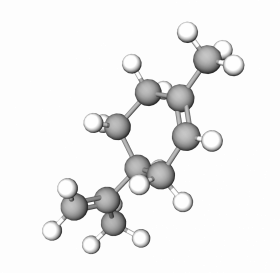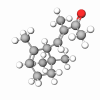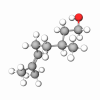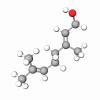Limonene is a cyclic terpenoid found in citrus fruit peel oils with a specific citrus-like odor. Approved by FDA, it is a safe and common ingredient in food (as a flavoring agent), perfume, and personal care applications thanks to its pleasant scent and natural origin.
It has two stereoisomers, D and L, naturally occurring in plants, D-limonene is a more common substance, while L type with pine-like odor is found in some edible plants, so both isomers are safe for topical use. In addition, it is an essential part of the citrus fruit defense system against malicious insects, so it is used as a natural insecticide and in skin care applications as an insect repellant.
Besides its pleasant scent and masking function, Limonene is valued for its astringent, tonic, and binding action, as well as it can be used as a solvent for insoluble ingredients and for controlling the viscosity of the formulation. In addition, limonene-based nanoemulsions act as transdermal carriers, protecting ingredients from degradation and delivering them to deeper layers of the skin.
Many scientific studies revealed anti-inflammatory, wound healing, and antioxidant effects of D-limonene on the skin. In addition, it modulates inflammation and oxidative stress after UV exposure, boosting skin recovery and renewal.It is a byproduct of orange juice production, so it is a renewable, rapidly biodegradable, and eco-friendly ingredient suitable for all types of personal care products. Thus it is commonly used in many applications, thanks to its availability, cost-effectiveness, and numerous beneficial effects.



